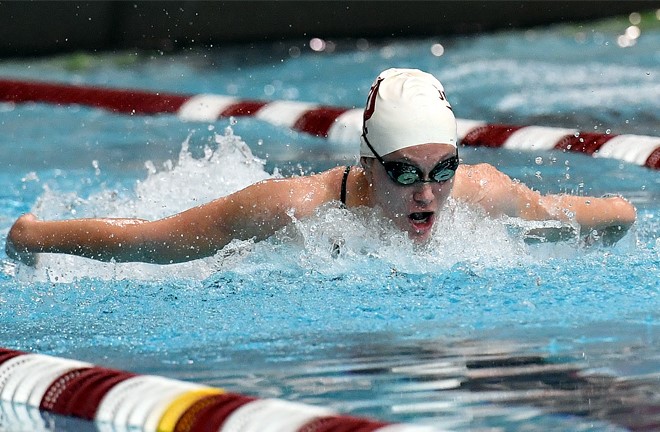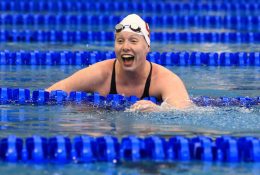Aces move to 6-0 at home with impressive victory
The University of Evansville defense held Murray State to just 27.8% shooting as the Purple Aces men’s basketball team moved to 6-0 at the Ford Center, taking down the Racers by a final of 78-46 on Saturday afternoon.
Jaylon Brown had his third 20-point effort in a row, notching a game-high 24 points while hitting all four of his 3-point attempts. Ryan Taylor scored 20 points as he hit 7 of his 13 attempts. David Howard finished the game with 10 for UE (6-4), hitting four out of six tries.
“From start to finish, that was our best effort so far,” UE head coach Marty Simmons said. “Our guys were aggressive in going after the ball and our hands were active in getting deflections. Overall, our execution was very good, especially in the first half.”
As a team, the Aces hit a season-high eight 3-pointers and shot 46.4% on the day.
Pacing the Racers (4-5) was Jonathan Stark and Bryce Jones, who had 9 points apiece.
“What we did today is what we have been working on all year, we were just better today,” Duane Gibson said. “Our guys were able to stay focused and be in the right spots.”
Triples were falling in the first half as the Aces knocked down six on their way to a 46-21 lead at the half. Evansville tied its season high for a game in just 20 minutes of play, led by Jaylon Brown, who was 3-for-3 in the opening 20 minutes. Brown completed the opening stanza with 19 points while Ryan Taylor registered 13.
After the Purple Aces notched the opening bucket of the day, Jonathan Stark connected on a triple to give Murray State a 3-2 lead. That would be the last advantage they would enjoy. The first big run of the day saw UE take a 12-4 lead. Taylor had six of those tallies. The Racers got within four, 21-17, at the midway point of the half before UE began to pull away.
Evansville finished the half on a 25-4 run to lead by 25 points following the first 20 minutes of action. Highlighting the half was the Aces finishing the period hitting their last five 3-pointers with Brown notching three. The defense held Murray State to just 24% shooting at the half (6-of-25) and just 2/12 from inside the arc.
Just as shots were falling in the first half, UE added to the lead in the second half. The advantage reached as many as 34 in the final minute before UE completed the game with the 78-46 finish.
“Any time we play them it is a big game and to come out with a win is big for us,” Brown said. “Coach Simmons tells us that we have to keep the pressure on no matter what the score is and we were able to do that today.”
The rebounding battle also went UE’s way in the form of a 40-37 advantage. Christian Benzon and Dalen Traore each had seven caroms. For Benzon, it matched his career mark while it was the best effort for Traore.
On Wednesday, UE will look to make it a perfect 7-0 at home, facing Norfolk State at 7 p.m.





